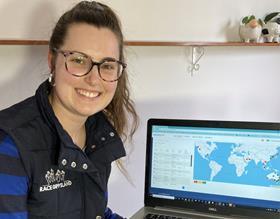
A programme educating high school students on global food supply chain management is being extended to classrooms across Australia.
The initiative, which started as a pilot in Victoria’s Gippsland region last year, will be launched nationwide this week via two webinars explaining the learning module and the benefits of acquiring knowledge about the operations responsible for distributing food worldwide.
Designed by Australia’sCQUniversity, the programme has the support of supply chain intelligence providerEscavox. The Sydney-based company has provided a customised version of its software platform, used by some of the world’s biggest food companies to monitor their supply chains.
“We are a young company at the forefront of the food supply chain evolution that is seeing more food businesses relying on data-informed solutions powered by IoT (Internet of Things) systems to drive their operations more efficiently and profitably into the future,” said Escavoxchief executive Luke Wood.
“To be globally competitive in this space, it is critical we are equipping our students of today to be the innovators and leaders of tomorrow.”
Founded three years ago,Escavoxuses smart-track technology to collect and report real-time data on supply chain performance.
The accuracy and immediacy of the data – generated by pocket-sized devices that capture information on temperature, time and location while embedded with food as it moves around the globe – effectively enables food suppliers to optimise management of their product during transit. Escavox customers receive information via a custom-built dashboard, accessable on their PC, smart phone, or tablet.
Teachers and students who work through the learning module, designed by the Agricultural Education and Extension Cluster atCQUniversity, will have access to their own purpose-builtEscavoxdashboard.
While the information will not be live or connected to actual customer data, the experience will simulate the supply of produce from each student’s local region to all parts of the world, where the safe and successful delivery of that product depends on the decisions they take during the exercise.
CQUniversityresearcher, Nicole McDonald,saidEscavoxhadprovided a platform for increasing the digital literacy of young people, enabling them toconduct searches, analyseproblems by interpreting data, investigateoptions for corrective action and shortlist solutions.
“Beyond all of those skills it drives home the message of the critical role that technology plays in helping to feed the people on our planet,” said McDonald.
“It’s giving students in this programme tangible information with real-world outcomes and that’s a great gift fromEscavoxto Australian educators and their students.
“Partnerships like these have a massive influence that ripple out over many years. We hope to see the community increase their knowledge of the Australian agricultural sector and more importantly, a greater number of people taking up careers in agriculture as a result.”
The educational programme started last year as part of the RACE Gippsland project, funded by the Victorian Department of Education and Training.



